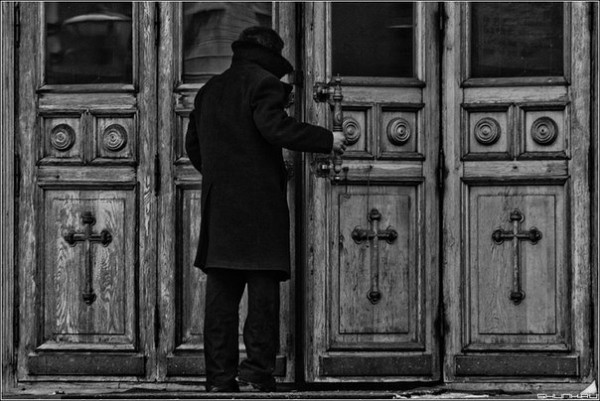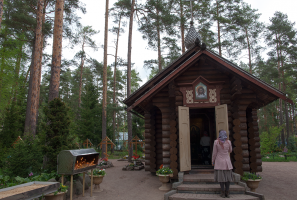It’s a common reality: people who believe in God without feeling the need to attend church regularly. They even have a name—“Nones”—because of their typical response to surveys asking about their religious affiliation. And those of us who consider Church attendance to be central to our faith might want ask ourselves why they are one of the most rapidly-growing demographics in North America.
What leads a person to believe in God, while refusing to identify themselves as members of a particular “faith community”?
These days, the answer would seem self-evident. Consider the genocides, the acts of terrorism, racism, and oppression by those who proudly claim to represent Christianity, Islam, Judaism and Hinduism. Witness the petty infighting, sectarianism, power-mongering, and divisiveness within religious communities. Add to this the various abuses inflicted by religious authorities on their weakest members, and it’s not difficult to understand why someone might want to have nothing to do with a church at all.
As a pastor who must deal daily with some of this religious madness in my own Eastern Orthodox Church, I can genuinely understand the impulse to withdraw from the trials and tribulations of the spiritual life in community, and to seek out what people have frequently referred to as a “personal faith.”
It is tempting to assemble our own set of beliefs about God, picking and choosing those elements that we find the most comforting, beautiful or simple. It is tempting to establish our own routine of prayer and meditation, our own spiritually meaningful rituals. It is tempting to want to be free from commitment to a church community, especially when such commitment often seems more draining than uplifting…
Why not take this path? Wouldn’t it just be so much easier to believe without all that formal, institutional stuff that just seems to make a mess of things?
The heart of the answer lies in the definition of the word “believe.” After all, what does it mean to believe in something, anyway? For many “Nones,” spiritual belief implies an intellectual acceptance of certain ideas about God. It makes logical sense that there is some Higher Power, an ordering Force behind everything. It makes logical sense to speak of right and wrong, good and bad. And it makes logical sense that we should pay attention in some way to something beyond our material lives.
If we look closer, though, this kind of belief has nothing really to do with the actual existence of God. Rather, it’s really all about me and my needs, and if a belief in God or some Higher Power helps me with those needs, so much the better. I can pick or discard the tenets of my belief system, as I need them. I can take or leave a faith community, depending on whether or not it meets my needs. I can even stop believing, if that helps. Because, ultimately, God is not the point here—the idea of God is the point, and then only in as much as it helps me fulfil my individual potential as a productive, healthy, well-rounded, well-adjusted, friendly, and more tolerant citizen of society and the world.
There is, however, another definition of what it means to believe. The original Hebrew and Greek words for “belief” are the same as “faith,” and they imply an active spirit of faithfulness, trust, and support.
Belief in the scriptural sense is a choice to enter into a living relationship with divine reality. We don’t just acknowledge the logic of God’s existence because it’s helpful to do so. We commit ourselves to His existence, which means submitting to Him in faithfulness and accountability and most importantly, sacrificing our personal inclinations, whims, and desires, to His higher power and will.
But can’t we still have a “personal faith” without committing to membership in a Church community? Because values like accountability, sacrifice, commitment and trust are mere abstractions unless they involve other people. And unless we are willing to submit our beliefs for others to challenge, correct or even reject, our faith will remain locked inside our heads, a set of self-created ideas detached from reality.
The point of living in a community united by one faith is precisely to make our experience of God real by working it out in relation with human beings who are walking the same path as ours. Without these relationships—what I would call “communion”—we cannot meaningfully believe in God because we cannot commit to, submit to, sacrifice to, trust, or love a Power greater than ourselves in a real, tangible way.
So, if an intellectual belief in the idea of God is what we want, Church may not be for us. It may prove destructive to our most cherished notions. It may challenge us, make us uncomfortable, or force us to answer questions we would rather avoid.
If, however, a real belief in an actual God is what we want, we must be ready to meet Him in the only way possible: by engaging in human relationships, as messy, frustrating, crazy-making, and heart-breaking as they can be. Only by participating in Church life, with all the pains and sorrows of commitment, responsibility, accountability and sacrifice, can we ultimately reach the true end of our spiritual journey: peace and joy in union with each other and with the One who made us to love and be loved by Him for eternity.




















